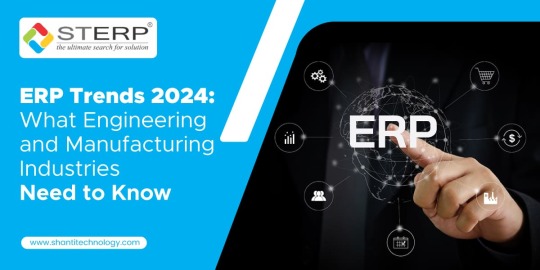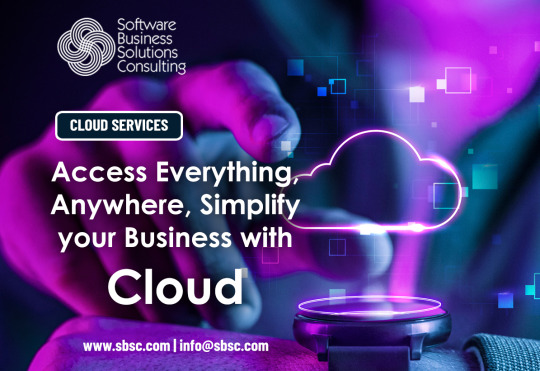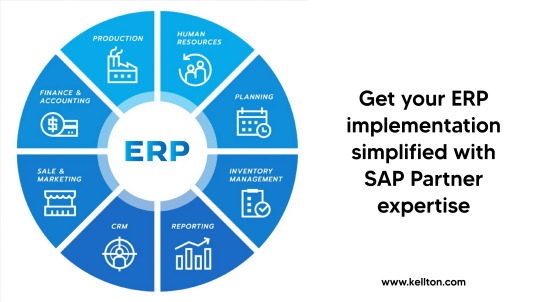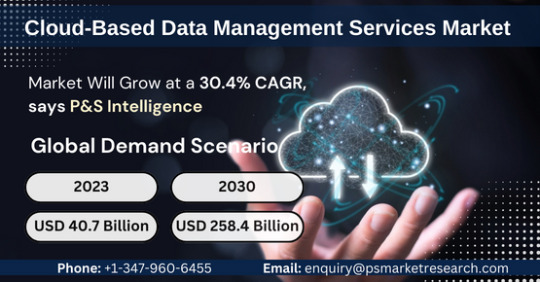#Cloud Managed Services Industry
Text
#Cloud Managed Services Market Report#Cloud Managed Services Industry Report#Cloud Managed Services Market#Cloud Managed Services Market Share#Cloud Managed Services Market Size#Cloud Managed Services Industry#Cloud Managed Services Market Growth#Cloud Managed Services Market Trends#Cloud Managed Services Market Analysis
0 notes
Text
Cloud Managed Services Market Growth, Overview with Detailed Analysis 2022-2028
Cloud Managed Services Market Growth, Overview with Detailed Analysis 2022-2028
This report studies the Cloud Managed Services Market with many aspects of the industry like the market size, market status, market trends and forecast, the report also provides brief information of the competitors and the specific growth opportunities with key market drivers. Find the complete Cloud Managed Services Market analysis segmented by companies, region, type and applications in the…
View On WordPress
#Cloud Managed Services#Cloud Managed Services forecast#Cloud Managed Services Industry#Cloud Managed Services Market#Cloud Managed Services price#Cloud Managed Services report#Cloud Managed Services research#Cloud Managed Services share#Cloud Managed Services trends#Covid-19 Impact Analysis
0 notes
Text
ERP Trends 2024: What Engineering and Manufacturing Industries Need to Know
As we navigate through 2024, the landscape of Enterprise Resource Planning (ERP) systems continues to evolve, presenting both opportunities and challenges for engineering and manufacturing industries. Companies in this sector, especially those in key industrial regions like Maharashtra, Mumbai, Pune, and Gujarat, must stay abreast of the latest ERP trends to maintain competitive advantage and operational efficiency. In this blog, we’ll delve into the significant ERP trends of 2024 and their implications for the engineering and manufacturing sectors.

1. Increased Adoption of Cloud-Based ERP Solutions
One of the most significant trends in ERP software for engineering companies in Maharashtra and across India is the shift towards cloud-based solutions. Cloud ERP offers several advantages over traditional on-premise systems, including lower upfront costs, greater scalability, and enhanced accessibility.
Benefits of Cloud-Based ERP:
Cost Efficiency: Eliminates the need for expensive hardware and reduces IT maintenance costs.
Scalability: Easily adjusts to the growing needs of a manufacturing company in Gujarat or an engineering firm in Mumbai.
Accessibility: Provides access to real-time data from anywhere, facilitating better decision-making.
Leading ERP software companies in Pune are increasingly offering cloud-based solutions tailored to the needs of local engineering and manufacturing businesses. These solutions support remote work and ensure business continuity in an increasingly digital world.
2. Integration of AI and Machine Learning
Artificial Intelligence (AI) and Machine Learning (ML) are revolutionizing ERP systems by providing intelligent insights and automating routine tasks. For ERP software for engineering companies in Mumbai, integrating AI can enhance predictive maintenance, optimize supply chain management, and improve production planning.
AI and ML Applications in ERP:
Predictive Analytics: Helps foresee equipment failures and reduce downtime.
Supply Chain Optimization: Enhances demand forecasting and inventory management.
Process Automation: Automates repetitive tasks, freeing up human resources for more strategic roles.
ERP solution providers in Pune are at the forefront of integrating AI and ML into their systems, enabling companies to leverage advanced analytics and improve overall operational efficiency.
3. Emphasis on Cybersecurity
With the increasing digitization of manufacturing processes, cybersecurity has become a critical concern. ERP systems, being the backbone of business operations, are prime targets for cyber-attacks. Engineering and manufacturing companies in regions like Gujarat and Maharashtra need robust cybersecurity measures to protect their sensitive data.
Key Cybersecurity Features:
Data Encryption: Protects data during transmission and storage.
Multi-Factor Authentication: Enhances user authentication processes.
Regular Security Audits: Ensures continuous monitoring and improvement of security protocols.
ERP software for engineering companies in Maharashtra must incorporate these advanced security features to safeguard against data breaches and cyber threats.
4. Enhanced User Experience (UX)
User experience has become a critical factor in ERP adoption and utilization. Modern ERP systems are focusing on intuitive interfaces and user-friendly designs to ensure that all employees, regardless of their technical expertise, can effectively use the system.
UX Improvements:
Intuitive Dashboards: Provide real-time insights and easy navigation.
Mobile Accessibility: Ensures that users can access ERP data on-the-go.
Customization Options: Allow users to tailor the system to their specific needs.
ERP software companies in Pune are prioritizing user experience in their solutions, making it easier for engineering and manufacturing firms to train their staff and increase productivity.
5. Internet of Things (IoT) Integration
The integration of IoT with ERP systems is another trend transforming the manufacturing industry. IoT devices collect vast amounts of data from production lines, equipment, and other operational areas, which can be analyzed by the ERP system to optimize performance.
IoT Benefits in ERP:
Real-Time Monitoring: Provides immediate insights into production processes.
Predictive Maintenance: Schedules maintenance activities based on equipment condition rather than time intervals.
Enhanced Quality Control: Monitors product quality throughout the manufacturing process.
For ERP for manufacturing companies in Gujarat, IoT integration offers a significant advantage by improving efficiency and reducing operational costs.
6. Sustainability and Green Manufacturing
Sustainability is becoming a critical focus for manufacturing companies worldwide. ERP systems are evolving to support green manufacturing practices by tracking and optimizing resource usage, reducing waste, and ensuring compliance with environmental regulations.
Sustainable ERP Features:
Resource Management: Tracks energy and material usage to minimize waste.
Regulatory Compliance: Ensures adherence to environmental laws and standards.
Sustainability Reporting: Provides detailed reports on sustainability metrics.
Engineering and manufacturing companies in regions like Mumbai and Maharashtra can benefit from ERP solutions that incorporate sustainability features, helping them achieve their environmental goals and enhance their corporate reputation.
7. Modular and Flexible ERP Solutions
In response to the diverse needs of engineering and manufacturing firms, ERP solution providers in Pune are developing more modular and flexible ERP systems. These systems allow companies to select and implement only the modules they need, which can be easily scaled and customized as their business grows.
Advantages of Modular ERP:
Cost-Effective: Pay only for the features you need.
Scalability: Easily add new modules as your business requirements evolve.
Customization: Tailor the system to fit specific operational needs.
This trend is particularly beneficial for small to medium-sized enterprises (SMEs) in the engineering and manufacturing sectors, enabling them to adopt ERP systems without the burden of high costs or complexity.
8. Focus on Customer-Centric Manufacturing
ERP systems are increasingly supporting customer-centric manufacturing practices, where production processes are aligned with customer needs and preferences. This approach enhances customer satisfaction and drives business growth.
Customer-Centric ERP Features:
Custom Order Management: Handles unique customer requirements and specifications.
Enhanced CRM Integration: Integrates with customer relationship management (CRM) systems for a holistic view of customer interactions.
Real-Time Order Tracking: Provides customers with real-time updates on their orders.
Manufacturing companies in Gujarat and engineering firms in Maharashtra are leveraging these customer-centric ERP features to improve their service levels and build stronger customer relationships.
9. Advanced Analytics and Business Intelligence (BI)
Advanced analytics and BI are becoming integral components of modern ERP systems. These tools provide deep insights into business operations, helping companies make data-driven decisions and improve performance.
Key BI Features:
Data Visualization: Converts complex data into easy-to-understand charts and graphs.
Dashboards: Offer a real-time overview of key performance indicators (KPIs).
Predictive Analytics: Forecasts future trends based on historical data.
ERP software companies in Pune are incorporating advanced analytics and BI capabilities into their systems, empowering engineering and manufacturing firms to gain a competitive edge through better insights and informed decision-making.
10. Globalization and Localization Support
As engineering and manufacturing companies expand their operations globally, ERP systems must support multiple languages, currencies, and regulatory requirements. Globalization and localization features are essential for companies operating in diverse markets.
Globalization Features:
Multi-Language Support: Accommodates users from different regions.
Multi-Currency Handling: Manages transactions in various currencies.
Compliance with Local Regulations: Ensures adherence to regional laws and standards.
ERP solution providers in Pune and other industrial hubs are enhancing their systems to support global operations, enabling companies to seamlessly manage their international business processes.
Conclusion
The ERP landscape for engineering and manufacturing industries is rapidly evolving, driven by advancements in technology and changing business needs. Companies in Maharashtra, Mumbai, Pune, and Gujarat must stay informed about these trends to leverage the full potential of ERP systems. By adopting cloud-based solutions, integrating AI and IoT, prioritizing cybersecurity, and focusing on sustainability, businesses can achieve greater efficiency, competitiveness, and growth in 2024 and beyond.
For engineering and manufacturing firms looking for the best ERP software for engineering companies in Maharashtra or ERP for manufacturing companies in Gujarat, it is crucial to partner with leading ERP solution providers in Pune who understand the unique challenges and opportunities in this sector. Embracing these trends will not only enhance operational efficiency but also drive innovation and sustainability in the engineering and manufacturing industries.
By staying ahead of these ERP trends, companies can position themselves for success in an increasingly digital and interconnected world. Whether you are an engineering firm in Mumbai or a manufacturing company in Gujarat, the right ERP system can transform your operations and pave the way for a prosperous future.
#ERP software in Vadodara#Manufacturing ERP software in Gujarat#ERP software companies in Vadodara#ERP software providers in Vadodara#ERP for manufacturing company in Gujarat#ERP software#ERP system#cloud ERP#ERP solutions#software development#engineering ERP#management software#engineering services#engineering industry
4 notes
·
View notes
Link
The business world is currently undergoing enormous change. Why? The CRM system is to blame. CRM consulting services are in high demand due to their influence. Let's first define CRM before moving on, shall we?
CRM, or customer relationship management, is a tool that aids in creating enduring relationships with customers. It is essential to effectively handle and utilize information if you want your firm to succeed. CRM offers a wonderful answer in this situation!
Learn the details of how a CRM solution and CRM consulting services help in transforming business performance digitally. Get the most out of your business.
#salesforce consulting services#CRM solutions#CRM Consulting Services#crm consultancy#CRM Consulting#CRM Consultants#best CRM consultants#Manufacturing CRM#Fintech CRM#Healthcare CRM#Retail CRM#CRM for startups#CRM in Healthcare#Salesforce CRM in Healthcare#CRM software#Salesforce is a cloud-based CRM software#salesforce implementation consulting#salesforce implementation company#customer relationship management consultants#Industry CRM#Salesforce CRM
3 notes
·
View notes
Text

Revolutionize your IT ecosystem by transitioning to the cloud and accelerate business growth. Our adept developers have honed their skills in crafting dynamic, robust, and resilient systems within a high-grade IT environment using efficient methodologies. Partner with the top cloud application development company to innovate and create tech products that offer next-level digital experiences. Cloud computing has firmly established itself in the IT landscape and has been dominating it for over a decade now.
Our Service Offerings
Cloud Assessment
A robust cloud strategy customized to your business objectives can be the differentiator between establishing a sustainable competitive edge in a rapidly evolving digital landscape and potentially wasting investment. Our hyper-focused cloud consulting services expedite digital transformation
Managed Cloud
The SBSC Cloud Managed Services offering introduces innovative strategies to tackle this challenge. As a seasoned Managed Services Partner with leading Cloud providers, we oversee all four dimensions of Cloud Management – Financial, Operational, Security/Compliance, and Technology.
Cloud Migration
We expedite time-to-value with our near-zero risk cloud migration solutions. By utilizing a suite of industry-proven approaches, tools, and accelerators, we ensure that your cloud aspirations are aligned with a seamless digital transformation.
Cloud Native Apps
Our cloud-native services enable digital enterprises to innovate, experiment, and scale rapidly in response to market demands. Leveraging Microservices, DevOps, Containers, and PaaS, we develop Cloud Native solutions that are both adaptable and secure.
Cloud Security
Utilize our expertise in network, data, and application security to gain a competitive edge in the cloud space by developing customized Cloud Access Security Brokers automated testing solutions for compliance standards and Data Loss Prevention (DLP).
Monitoring and Maintenance
As your one-stop solution for multiple cloud app development requirements, we provide SLA-driven ongoing support and maintenance to ensure your systems remain secure, bug-free, and evolve with the latest technological advancements.
Advantages Of SBSC Cloud Services
Best-fit: Cloud Solution to get high productivity and increase efficiency
Excellence: designing and implementing scalable architectures
Full Cycle: configuration, deployment, ongoing support and maintenance
Experience: Leveraging suitable platform features and optimized standards.
Don’t Hesitate To Contact With Us,
We’ve Very Friendly
Call: +1 (877) 213 3835
Email: [email protected]
Website: https://www.sbsc.com
#cloud-based software#enterprise software development#industry specific solutions#it consulting#global software development#it solutions for healthcare#it solutions for finance#Assessment Servicesment#ecommerce solutions#cloud services#Cloud configuration Services#Cloud Maintenance Services#Cloud Migration Services#Cloud Monitoring Services#Cloud Native Apps#Cloud Security#Cloud Solution for business#Cloud-Based Software#Industry specific Cloud#Managed Cloud Services
0 notes
Text

Unlock peak efficiency with our top-rated SAP service provider. Elevate your ERP solutions with expert guidance and cutting-edge technology. Let's optimize your business together.
#SAP service provider#enterprise solutions#business software#technology consulting#ERP implementation#SAP integration#industry-specific solutions#managed services#cloud migration#digital transformation
0 notes
Text
Cloud Based Data Management Services Industry is Led by North America
According to the latest market research study published by P&S Intelligence, the cloud-based data management services market was USD 40.7 billion in 2023, which will rise to USD 258.4 billion, with a 30.4% CAGR, by 2030.
This is because of the increasing acceptance of cloud services and the requirement for cost-effectiveness, digital banking, remote work, accessibility, data backup, scalability,…

View On WordPress
#Cloud Based Data Management Services Industry#Data security and Backup#Integration#Platform as a Service#Software as a Service
0 notes
Text
Top Legal Technology Solutions Companies

In today's fast-paced world, the legal profession is experiencing a profound transformation, and it's all thanks to the rapid advancements in legal technology. Gone are the days when legal professionals relied solely on paper-based records, endless hours of research, and face-to-face consultations. Legal technology is ushering in a new era, offering greater efficiency, transparency, and accessibility in the legal field. This editorial will explore the evolution of legal technology and the profound impact it has had on the practice of law.
#IT infrastructure#managed network services#process standardization#innovation#digital transformation#remote workstations#hybrid working#cloud management services#AI#machine learning#global market#outsourcing#revenue generation#Enterprise Networking Magazine#thought leadership#industry experts#market trends#virtual care services#partnership#efficient technology.
0 notes
Text
Data Protection: Legal Safeguards for Your Business
In today’s digital age, data is the lifeblood of most businesses. Customer information, financial records, and intellectual property – all this valuable data resides within your systems. However, with this digital wealth comes a significant responsibility: protecting it from unauthorized access, misuse, or loss. Data breaches can have devastating consequences, damaging your reputation, incurring…

View On WordPress
#affordable data protection insurance options for small businesses#AI-powered tools for data breach detection and prevention#Are there any data protection exemptions for specific industries#Are there any government grants available to help businesses with data security compliance?#benefits of outsourcing data security compliance for startups#Can I be fined for non-compliance with data protection regulations#Can I outsource data security compliance tasks for my business#Can I use a cloud-based service for storing customer data securely#CCPA compliance for businesses offering loyalty programs with rewards#CCPA compliance for California businesses#cloud storage solutions with strong data residency guarantees#consumer data consent management for businesses#cost comparison of data encryption solutions for businesses#customer data consent management platform for e-commerce businesses#data anonymization techniques for businesses#data anonymization techniques for customer purchase history data#data breach compliance for businesses#data breach notification requirements for businesses#data encryption solutions for businesses#data protection impact assessment (DPIA) for businesses#data protection insurance for businesses#data residency requirements for businesses#data security best practices for businesses#Do I need a data privacy lawyer for my business#Do I need to train employees on data privacy practices#Does my California business need to comply with CCPA regulations#employee data privacy training for businesses#free data breach compliance checklist for small businesses#GDPR compliance for businesses processing employee data from the EU#GDPR compliance for international businesses
0 notes
Text
GenAI in India: Tech Industry Partnerships Catalyze Adoption

The likes of IBM, Tech Mahindra, Google Cloud, Netapp, Deloitte, ServiceNow and the likes are all jumping into the GenAI bandwagon. APAC News Network explores the dynamics of some of these partnerships.
GenAI or Generative AI is fast gaining grounds in India, especially in terms of acceptance by different stakeholders. These include the different enterprises across different verticals using GenAI in different facets of their businesses. Another stakeholder has been the Indian GenAI-based SaaS startups whose numbers too are rapidly rising every year. Add to this the IT services giants and software giants who too are jumping into the GenAI bandwagon. Last but not the least, the government too is supporting the GenAI revolution with proactive policy formation and creating appropriate implementation environment in the country.
Worldwide there is an explosion in the number of Gen AI-native SaaS companies and a surge in investment capital, with over $12 billion funneled into 60+ emerging domains in FY23 alone. The Indian players, on the other hand, raised $590 million in funding during the same time period. While globally there are 259 generative AI startups as of 2024, in India there are around 20+ pure-play generative AI startups.
Also Read More Here : https://apacnewsnetwork.com/2024/04/genai-in-india-tech-industry-partnerships-catalyze-adoption/
#GenAI in India Tech Industry Partnerships Catalyze Adoption#GenAI in India#Tech Industry Partnerships Catalyze Adoption#Sandip Patel#MD#IBM India#Sandip Patel MD IBM India#Chetan Krishnamurthy#VP#Ecosystem and Digital Sales#Asia Pacific#IBM#Chetan Krishnamurthy VP Ecosystem and Digital Sales Asia Pacific IBM#Karthik Rajaram VP & GM Elastic India#Sunil Gupta#Co-Founder#MD and CEO#Yotta Data Services#Sunil Gupta Co-Founder MD and CEO Yotta Data Services#Pravjit Tiwana#SVP & GM#Cloud Storage#NetApp#Pravjit Tiwana SVP & GM Cloud Storage NetApp#Anshul Shrivastava CEO Vodex#Bhaskar Majumdar Managing Partner Unicorn India Ventures
0 notes
Text

Dozens of Google employees began occupying company offices in New York City and Sunnyvale, California, on Tuesday in protest of the company’s $1.2 billion contract providing cloud computing services to the Israeli government.
The sit-in, organized by the activist group No Tech for Apartheid, is happening at Google Cloud CEO Thomas Kurian’s office in Sunnyvale and the 10th floor commons of Google’s New York office. The sit-in will be accompanied by outdoor protests at Google offices in New York, Sunnyvale, San Francisco, and Seattle beginning at 2 pm ET and 11 am PT.
Tuesday’s actions mark an escalation in a series of recent protests organized by tech workers who oppose their employer’s relationship with the Israeli government, especially in light of Israel’s ongoing assault on Gaza.
Just over a dozen people gathered outside Google’s offices in New York and Sunnyvale on Tuesday. Among those in New York was Google cloud software engineer Eddie Hatfield, who was fired days after disrupting Google Israel’s managing director at March’s Mind The Tech, a company-sponsored conference focused on the Israeli tech industry, in early March. Several hours into the sit-ins on Tuesday, Google security began to accuse the workers of “trespassing” and disrupting work, prompting several people to leave while others vowed to remain until they were forced out.
The 2021 contract, known as Project Nimbus, involves Google and Amazon jointly providing cloud computing infrastructure and services across branches of the Israeli government. Last week, Time reported that Google’s work on Project Nimbus involves providing direct services to the Israel Defense Forces. No Tech for Apartheid is a coalition of tech workers and organizers with MPower Change and Jewish Voice for Peace, which are respectively Muslim- and Jewish-led peace-focused activist organizations. The coalition came together shortly after Project Nimbus was signed and its details became public in 2021.

You can read No Tech for Apartheid's open letter here.
#yemen#jerusalem#tel aviv#current events#palestine#free palestine#gaza#free gaza#news on gaza#palestine news#news update#war news#war on gaza#apartheid#gaza genocide#genocide#boycott divest sanction#boycott google#bds movement#Edited
5K notes
·
View notes
Text
SAP Software Solutions Implementation Guide: Key Steps and Considerations

Applications from SAP are the foundation of any company. As a result, the owners and CIOs worked extremely hard to ensure that SAP was implemented successfully. That being said, many SAP implementations fall short despite all the preparation and effort. It is believed that there is a 50/50 likelihood of success with SAP. This is a result of many companies making mistakes at the beginning.
All of the important phases of SAP implementation must be taken into account, planned for, and adhered to by successful SAP implementation businesses. Whether it's SAP ERP, SAP S/4HANA, or another SAP system. These phases are the same in every SAP implementation.
Key Stages in the SAP Implementation Journey
One of the common methodologies for SAP project preparation and system installation is Accelerated SAP (ASAP). You can expedite your SAP ERP implementation process and successfully optimize time, money, and quality by adhering to this SAP implementation methodology. This SAP implementation procedure consists of seven essential steps.
Project Preparation/Planning
This is the beginning stage that causes the SAP deployment project to fail, as we discussed previously. It entails designing the complete project after taking into account every aspect, which might be difficult given the large landscape. Consequently, choosing one of the top SAP implementation firms, or SAP MSPs, is crucial. They can assist you in developing the most effective SAP roadmap in a variety of methods.
You must clarify your goals, priorities, and scope when communicating with SAP implementation providers. You and the MSP can collaborate to select the appropriate tools and methods that will meet your demands. Choose which operations should be updated or moved to SAP after the tools and techniques have been chosen. Among the other essential tasks completed at this point are the as-is system study and project and resource planning. Planning for no downtime during the SAP ERP implementation process is also essential to guaranteeing business continuity.
Business Blueprint
Before using the ERP implementation technique, it is critical to thoroughly comprehend and map out your future business processes. Your present and future company processes will never entirely align, and there will always be some discrepancies. To guarantee seamless SAP project planning, these gaps can be reduced with the creation of a blueprint document.
The SAP implementation partner will examine all of the gaps and optimize both the current and upcoming SAP procedures during these sessions. This phase also involves the identification of additional aspects, such as the organizational structure and satellites. The basic data that must be modified for the SAP implementation to succeed and for the SAP or ERP software to function is part of the organizational structure modifications. The satellites, on the other hand, are a collection of programs that are still relevant even after you go live and do not need to be modified because they are not needed by the SAP software.
Realization/Implementation
Following the completion of the gap analysis, your SAP implementation partner will configure the baseline configuration, which is your baseline system. The ERP implementation project plan closes any holes in the business blueprint to guarantee a smooth SAP implementation while fine-tuning the system to satisfy all of your business and process needs. The SAP implementation team also takes care of any necessary adjustments during this phase.
This stage involves converting inactive systems and making any necessary revisions to integrate the existing infrastructure with the ERP implementation procedures.
Integration Tests
Testing will start concurrently with the migration and implementation (it works hand in hand with the Realization phase). To assess how well the implementation is going and make sure the SAP systems are producing results, the ERP implementation phases will begin running a variety of tests (Unit and Integration tests).
There are numerous arrangements for the integration phase. Testing and migrating only half of the present procedure can be done as the first setup. Testing a single process once it has been implemented on the SAP landscape is another setup option. The entire procedure and workload are tested at the very end.
Preparation
As the name suggests, the last stage of preparation entails the steps necessary to get your staff and systems ready for go-live. Any adjustments needed for a full migration to the SAP systems will be made by an ERP implementation methodology based on the outcomes of the Realization and testing phases.
Employees will receive training on how to use SAP and ERP software for daily tasks. This phase serves as a kind of pre-check to make sure everything is completely ready before going live.
Go-live
In this stage, you transfer all of the data to the SAP systems in the production environment and go from a pre-production to a live environment. The old SAP systems are no longer in use after all the data has been transferred to the new ones. The project managers will oversee the use of new apps, the migration of data, and the frequent testing to make sure everything functions as it should.
SAP systems are performance-optimized and are constantly monitored. During this phase, the production support system set up for the ERP implementation project plan is also completed.
Production/ GO Live Support
Establishing a specialized support team and transitioning from the installation team to the support team—which is capable of continuously monitoring and resolving any production issues—are part of this phase. When necessary, the support staff will also assist users and root users in becoming accustomed to SAP systems and applications. Support documentation is created and kept up to date to guarantee efficient operations.
Conclusion
You may streamline SAP deployment and lower the overall implementation cost by adhering to these seven essential processes. With improved quality control and governance, you can achieve all of your business goals.
To guarantee success and the perfect start, choose the best SAP MSP. Join forces with Cloud4C to receive top-notch SAP services. Being a SAP-certified MSP with more than ten years of expertise, we can provide excellent SAP implementation services.
#SAP service provider#enterprise solutions#business software#technology consulting#ERP implementation#SAP integration#industry-specific solutions#managed services#cloud migration#digital transformation
1 note
·
View note
Text
#Quality application solutions#Cloud IT Solutions#Web based quality management system#IT recruitment service company#Best Tech Recruitment Agency#Technical Staffing Services#Technical staffing solutions#entertainment media industry#data mapping automation
0 notes
Link
Report define, describe, and forecast the Cloud managed services market based on service type, organization size, industry verticals, and regions.
#marketsandmarkets research pvt. ltd.#cloud managed services market#cloud managed services#cloud managed service market#cloud managed service industry
0 notes
Text
Unlocking the Potential of Remote Monitoring

Remote monitoring is an integral part of Industry 4.0, the fourth industrial revolution. It is a system that allows companies to remote infrastructure monitoring services. This technology enables companies to improve efficiency, reduce costs and enhance safety in their operations.
Remote monitoring uses sensors, cameras, software applications and other tools to collect data from various sources such as machines, equipment, systems and processes. This data can then be analysed to identify potential problems or opportunities for improvement. By using this technology, companies can maintain a better control over their operations and make sure that everything runs smoothly even when they are not physically present at the site.
The Internet of Things (IoT) has revolutionized the way industrial remote monitoring is done. With the help of IoT, it is now possible to monitor industrial processes remotely and in real-time. This has enabled companies to save time, money and energy by reducing the need for manual labour and onsite visits.
IoT technology allows for automated data collection from connected equipment that can be used to monitor various aspects of an industrial process such as temperature, pressure, humidity and more. This data can then be used to identify patterns and trends that can help inform decisions about how to improve efficiency or reduce costs. Additionally, IoT devices can be used to detect potential problems before they become serious issues, allowing for quick intervention if necessary.
Application of Remote Monitoring across Industries
Remote monitoring is becoming an increasingly popular tool for businesses to monitor their operations and ensure that everything is running as efficiently as possible. With the help of remote monitoring, companies can keep track of their operations in real-time, from anywhere in the world.
Remote infrastructure monitoring services has a wide range of applications across different industries, from manufacturing to healthcare. It helps companies reduce costs by eliminating the need for on-site personnel and it also helps them improve efficiency by allowing them to quickly identify potential issues and address them before they become a problem.
By leveraging the power of remote monitoring, companies can gain insights into their operations that would otherwise be difficult or impossible to obtain. This makes it an invaluable tool for businesses looking to maximize efficiency and minimize costs.
Challenges in Remote Monitoring
With the rise of remote working, it has become increasingly difficult to monitor employees’ performance. Remote monitoring can be a challenge due to the lack of face-to-face interaction, the need for trust and accountability, and difficulty in measuring productivity.
Remote monitoring requires an effective strategy that takes into account all aspects of employee performance. It is important to ensure that employees are given clear instructions on how their work should be conducted, and that they have access to the necessary tools and resources. It is also important to provide regular feedback so that employees are aware of their progress and areas of improvement.
In order for remote monitoring to be successful, companies must invest in technology solutions such as employee tracking software, video conferencing tools, task management systems, etc., in order to maintain visibility over their workforce. This will help them stay connected with their teams even when they are not physically present in the office space.
Future of remote monitoring
Remote monitoring is on the rise and it is here to stay. With remote monitoring, organizations can track and monitor their assets from anywhere in the world. This technology has been a game-changer in terms of cost savings, efficiency, and safety.
The future of remote infrastructure monitoring services looks bright as more businesses are turning to this technology for their operations. With advances in AI and IoT, we are seeing more sophisticated solutions that allow for better data collection and analytics. This will enable companies to make better decisions about their assets remotely and will also help them save money by avoiding expensive on-site visits.
Read more @ www.gavstech.com/drawing-real-value-from-remote-monitoring/
#relational database security#healthcare cybersecurity risk management technology#robotic process automation coe#cybersecurity and risk management services healthcare#cloud management#customer experience#cloud managed services#healthcare industry digital transformation#digital transformation solutions#data center as a service#health data management
0 notes
Photo

DANE is a technology that might modify our existing and upcoming days via Cloud Adoption Solutions Devops. It’s a DNSSEC trust structure for X.509 certificates that deliver encoded email communications.
#cloud enablement services#cloud migration services companies#Cloud Adoption Solutions Devops#AI In healthcare Sector#aiinhealthcare#healthcareAI#AIOps Managed Infrastructure Services#AIOps Tools in Healthcare Industry#digital transformation in healthcare#Artificial Intelligence in Healthcare Industry#healthcare transformation#healthcare compliance
0 notes